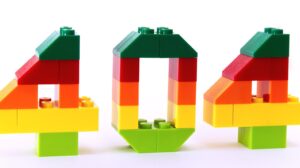So what is Web 3.0? In simple words, it is a fully transparent, unbiased, and secure third-generation Internet, based on Web 3.0 technologies like AI, natural language processing, IoT, AR/VR, and WebGL. But, while these technologies are critical for delivering top-notch user experiences, for Web 3.0, blockchain plays a decisive part.
Another Web 3.0 definition is the decentralized web. This basically means that the data is distributed evenly through the nodes on the blockchain network, and cannot be erased, deleted, or tampered with without the awareness and consent of all parties involved.
The decentralization is achieved by using the distributed ledger, which creates a secure and transparent environment with fair possibilities for doing business for every company.
The new and advanced worldwide web is rapidly evolving, offering a range of Web 3.0 websites and services based on blockchain platforms.
As of today, the most spectacular Web 3.0 examples across industries include:
- Social networks
- Crypto exchange platforms
- Messaging services
- Data storage capacities
- Banking and finance apps and services
- Browsers
- Streaming music and video platforms, etc.
The advent of Web 3.0 has also given rise to a number of alternative monetization models. While ICOs (initial coin offerings) are familiar to everyone, other models include revenue and income sharing, percentage fees, continuous funding, and curved bonding models. The SaaS and marketplace models, which are the predominant monetization methods of Web 2.0 will gradually become obsolete.
What Are the Main Characteristics of Decentralized Web 3.0?
For organizations, Web 3.0 will imply the entirely new way of doing business. This includes the following:
- User-centricity
The users are not only the main authors of the content, they also have full ownership and control over their data. Unlike web 2.0, where data is collected and sold by corporations without users’ consent, customers will be the ones to decide which information they want to share with others.
- Trustlessness
Businesses will be enabled to conduct secure transactions across borders without having to rely on trust: the procedures will be taking place automatically, upon meeting the necessary terms and conditions.
- Interoperability
Web 3.0 apps run on all devices and platforms, so interoperability will no longer present a problem.
- Increased fairness and transparency
Decentralized Web 3.0 will eliminate the monopoly of tech giants. Every company will have equal possibilities for growth and development. Next-generation Internet will also be free from bias and discrimination, and organizations will be enabled to transfer funds and assets in a fast and secure way, with no permissions required from any intermediaries or third parties.
The adoption of Web 3.0, however, will be a gradual process, that will require businesses to rethink the ways they operate, redefine their priorities and look for reliable tech partnerships to help them adopt new technologies and business principles. It’s always advisable to start off with a small pilot project, which will help organizations to test their ideas and new business approach for viability.





